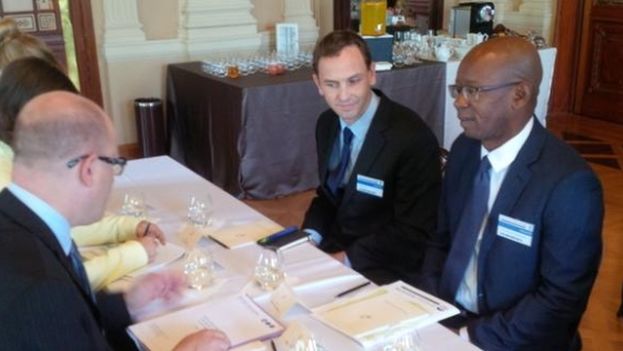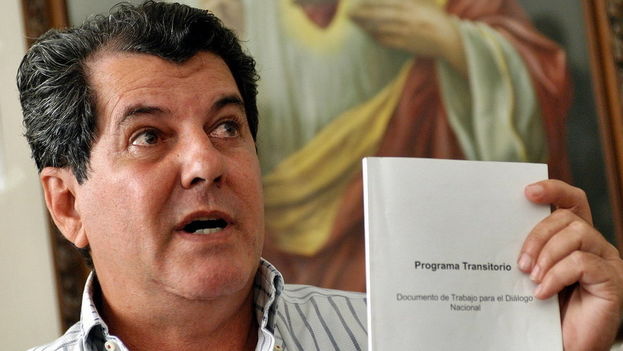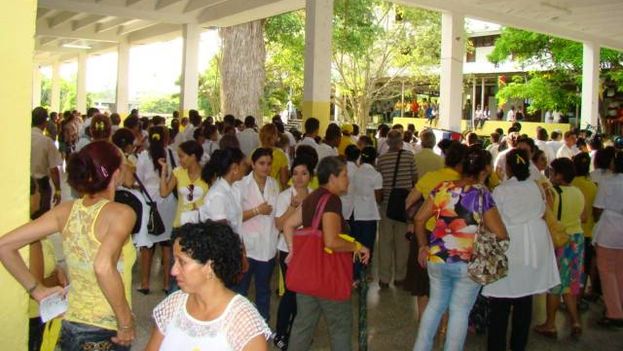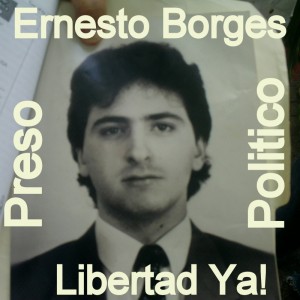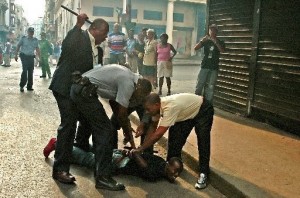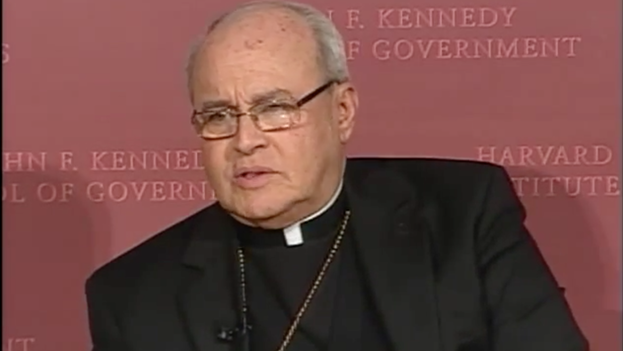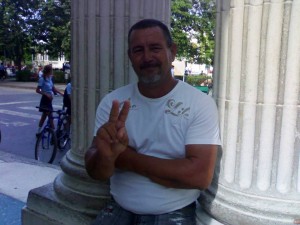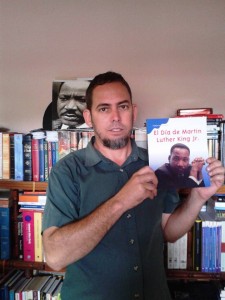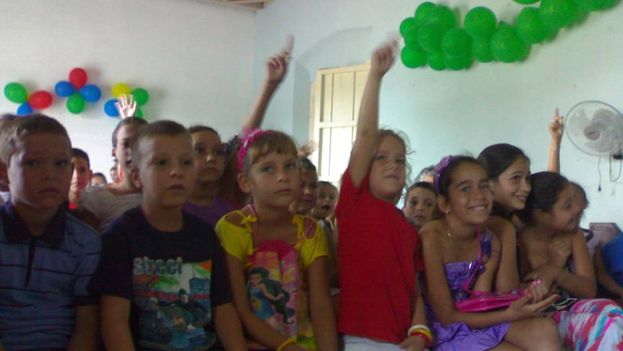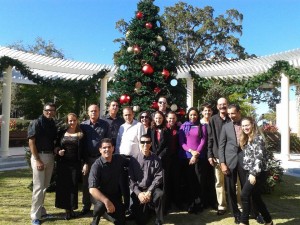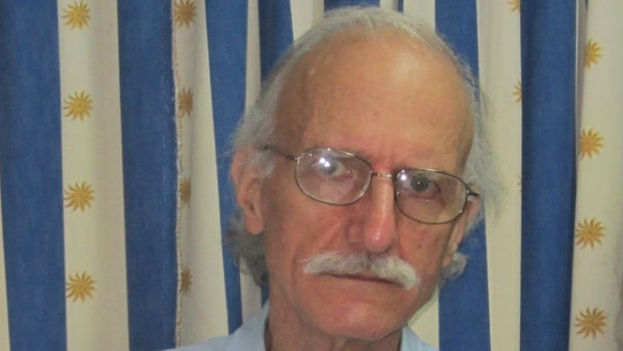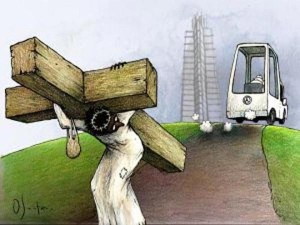 Those of us who lived through the repressive crackdown that took place in Cuba in 2012 during the visit of Benedict XVI have never received a response from the Vatican, although it was informed of the facts. Jose Conrado—the priest who is a maverick within the Catholic Church in Cuba, like a modern-day Father Bartolome de las Casas**—met with many of us on March 29, 2012, in the home of Ismael de Diego, to share experiences of what happened during the papal visit to Cuba, the police crackdown called “Operation Vow of Silence.” The priest expressed regret and personally delivered letters and videos to the Apostolic Nunciature. But they didn’t even give him the courtesy of a response. As a result of this crackdown some activists were detained for more than two years without even the formality of a trial. continue reading
Those of us who lived through the repressive crackdown that took place in Cuba in 2012 during the visit of Benedict XVI have never received a response from the Vatican, although it was informed of the facts. Jose Conrado—the priest who is a maverick within the Catholic Church in Cuba, like a modern-day Father Bartolome de las Casas**—met with many of us on March 29, 2012, in the home of Ismael de Diego, to share experiences of what happened during the papal visit to Cuba, the police crackdown called “Operation Vow of Silence.” The priest expressed regret and personally delivered letters and videos to the Apostolic Nunciature. But they didn’t even give him the courtesy of a response. As a result of this crackdown some activists were detained for more than two years without even the formality of a trial. continue reading
When those repressed in Cuba met months later, on February 11, 2013, the date of Joseph Ratzinger’s resignation, something which hadn’t happened for almost six hundred years, we speculated that among all the reasons why the Pope took this momentous decision, even if the smallest of all, was his silence about what had happened to us.
Before the announcement of the new Pope’s visit this time, many of us thought the story would be different. As an indication of this, on July 16, 2015, Cuban Civil Society Open Space sent a letter by way of the Apostolic Nunciature to Pope Francis suggesting that he “receive a representation of Cuban civil society, as had happened during your recent apostolic trip to Latin America, in a private audience during the busy schedule of your anticipated next visit to Cuba. This symbolic gesture could mean the inclusion of all Cubans, especially those of us pushed to the margins of society and treated as second-class citizens because of our way of thinking or for proposing peaceful, non-violent alternatives.” This letter was delivered in person that same afternoon by Father Jose Conrado, accompanied by the prominent Catholic layman Dagoberto Valdes, and me, and was received by the Secretary of the Nuncio.
Regrettably, our letter did not receive a positive response and the Pope did not hold private meetings, except with Fidel Castro, the victimizer, to whom he extended a harmful and very undeserved legitimacy. To make matters worse, and contrary to that spirit, what actually happened was that across the length and breadth of the island at least 250 peaceful activists were arrested. The four activists who managed to break through police cordons to try to reach the Pope to respectfully express their feelings and deliver a letter were seen live by the entire world, and to date they remain in a maximum security prison. In addition to this there were hundreds of illegal house arrests and communication blockages similar to those enforced during the 2012 “Vow of Silence” operation when Benedict XVI visited.
Weeks in advance the regime began preparing this crackdown, using international media to defame and circulate false information in order to create confusion. An interview with agent Raul Capote by Russian media was disseminated worldwide. Agents employed by the regime did the same on social networks with apocryphal stories on Twitter trying to instigate religious hatred and bias the Catholic clergy against Cuban civil society, warning of phony “sabotages” against the papal visit.
In his homily the Pope expressed messages of mercy and peace worthy of being taken seriously by Cuban society and by those who misrule. But the latter did not give any sign of receiving the message, and even exploited his visit, as they had that of Benedict XVI, to carry out, as usual, something quite the opposite. While representatives of the regime sported guayaberas and hypocritical smiles, their henchmen returned to execute behind the scenes, as in 2012, a genuine witch hunt.
Still the Vatican and Pope Francis could help greatly by issuing some statement acknowledging the above facts, which we never got from the pontificate of Benedict XVI. But maybe Francis agrees with the former president of the National Assembly of Cuba, Ricardo Alarcon de Quesada, who when interviewed by Jackie Nespral of NBC said dismissively that “the Pope is a busy man and cannot waste time with people and issues that are not important.”
*Latin for “Where are you going?” The reference is to an apochryphal encounter by the Apostle Peter, fleeing persecution in Rome, with the risen Jesus. When Peter asks Jesus this question, Jesus answers “To Rome to be crucified again.” In response, Peter returns to Rome, and his own subsequent martyrdom.
**16th-century Spanisn cleric who championed Native-American rights.
Translated by Tomás A.
Spanish post
25 September 2015

